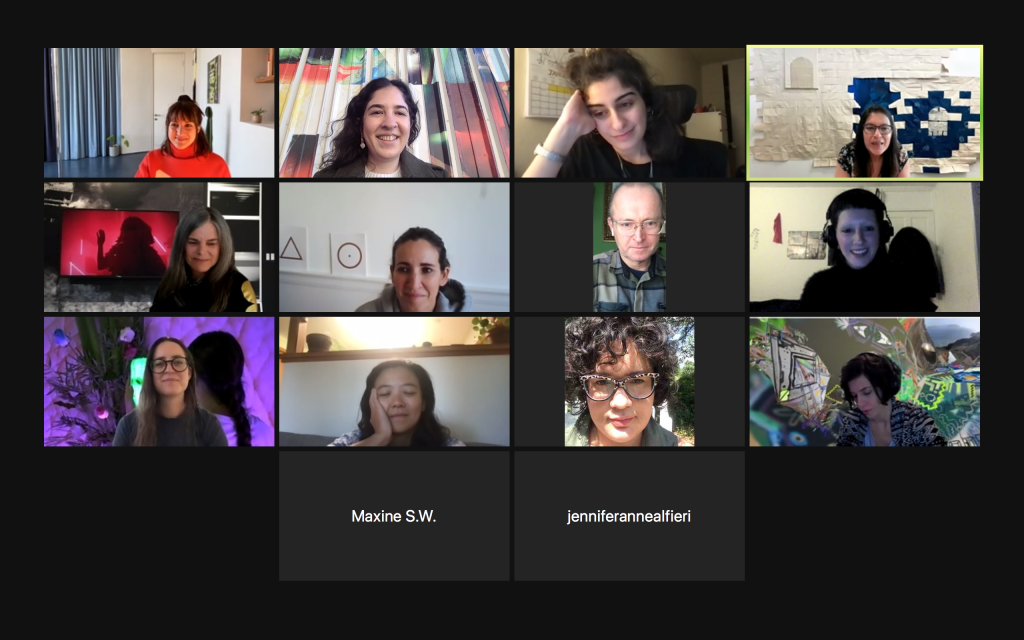
Reading Group: Under the Waqwaq Tree
Facilitated by Naz Cuguoğlu, Mine Kaplangı, Hakki S. Cacekli (Collective Çukurcuma)
Entering the world of Under the Waqwaq Tree, this reading group will be guided by a reading list engaging with hybridity, monsters, mythological creatures, and speculative fiction as a methodology to imagine alternative worldbuilding. Artists featured in the exhibition will attend some of the sessions, suggesting texts and readings about their works in the show.
The reading group will meet for four sessions online and in person at the Asian Art Museum and / (slash) art space. Participants may attend as many of the sessions as they wish.
Schedule:
- Session 1: Nov 6, 2021 1-2pm, in-person at the Asian Art Museum with artists Cathy Lu & Ranu Mukherjee
**Please note that this session will take place as part of the Asian Art Museum’s After Hope Symposium: Future Forms and Alternative Methods and requires the museum admission fee for attendance along with proof of vaccination and ID. - Session 2: Nov 20, 2021 12-1:30pm, in-person at / art space (no attendance fee)
**Please note that / will be requiring masks indoors as well as proof of vaccination and ID. - Session 3: Dec 4, 2021 12-1:30pm, online (no attendance fee)
- Session 4: Jan 22, 2022 12-1:30pm, in-person at / art space (no attendance fee)
**Please note that / will be requiring masks indoors as well as proof of vaccination and ID.
Please click here to sign up for one or more sessions. We will follow up with everyone who registers with details, including PDFs of the readings.
Readings across all four sessions will include excerpts from Bloodchild and Other Stories by Octavia E. Butler, Can the Monster Speak?: Report to an Academy of Psychoanalysts by Paul B. Preciado, Regarding The Pain Of Others by Susan Sontag, Woman, Native, Other by Trinh T. Minh-ha, “Uses of the Erotic: the Erotic as Power” by Audre Lorde, and Our Fatal Magic by Tai Shani.
There is also a recommended reading list for Under the Waqwaq Tree, including texts and books chosen by Naz Cuguoğlu, Mine Kaplangı and all artists featured in the exhibition. Many of the books on the list are available for browsing at the / library.
Collective Çukurcuma Reading Group is a platform that foregoes institutional hierarchies in favour of a horizontal learning environment where the resources are shared and repurposed to create a more equal and accessible space for knowledge production.
Session 1 – Discussion Questions
Date – Nov 6, 2021 1-2pm
Location – Asian Art Museum
Number of participants – 9
Selected Texts – Under the Waqwaq Tree Curatorial Text and Letter from the Exhibition’s Catalog
- To reflect on aliens, why do we look at trees (something so tangible)?
- Does being multiple things at a time bring any contradiction?
- “Trees are going to save the planet” — why do we think this is too much to ask from trees?
- Discuss the term “tree as a host.”
- Analyze Jalal Toufic’s term “surpassing disaster” in relation to the term “tree as a witness.”
- Banyan trees strangle their hosts but also give life to others — how does this relate to colonial history?
- How do ghosts carry a knowledge about temporality?
Session 4 – Discussion Questions
Date – Jan 22, 2022 12-1:30 pm
Location – Virtual
Number of participants – 15
Selected Texts – Chapter 1 of Woman, Native, Other: Writing Postcoloniality and Feminism by Trinh T. Minh-Ha as well as “Gaiaguardianxs” (Gaia’s Guardians) by Patricia Domínguez.
Transference
Disillusion
Everything burned
They don’t have enough water to make tears
If I don’t write the same day — I start forgetting
Who has the voice to be a writer?
Giving a new choreography to reality
Personal is political
Community and collaboration — to get nonlinear
Multiple narratives one person has — some we are not conscious of
Intergenerational knowledge being passed
Layers of queer agency
Longing, desire, fear of death
These fictional texts got embedded in me
“Mirrors”
When you need fiction — when you don’t have words for it
Tongue — language
“Humor” as a tool
Letter — there is time, it needs to travel
Living within the paradox — the paradox is the reality — creating a language for that
Restructuring language
Nonverbal language — telepathy
“It’s a feeling” — intuition
“Always becoming”
Staying silent as a group
Courage to create
Writing as a bodily experience – write your body – organic writing
Creating personal inclusive spaces by sharing personal stories
Writing for not to forget the feeling
We need fiction to understand reality
Finding other agencies, ways of communication to leave linearity behind and cherish our complexities
